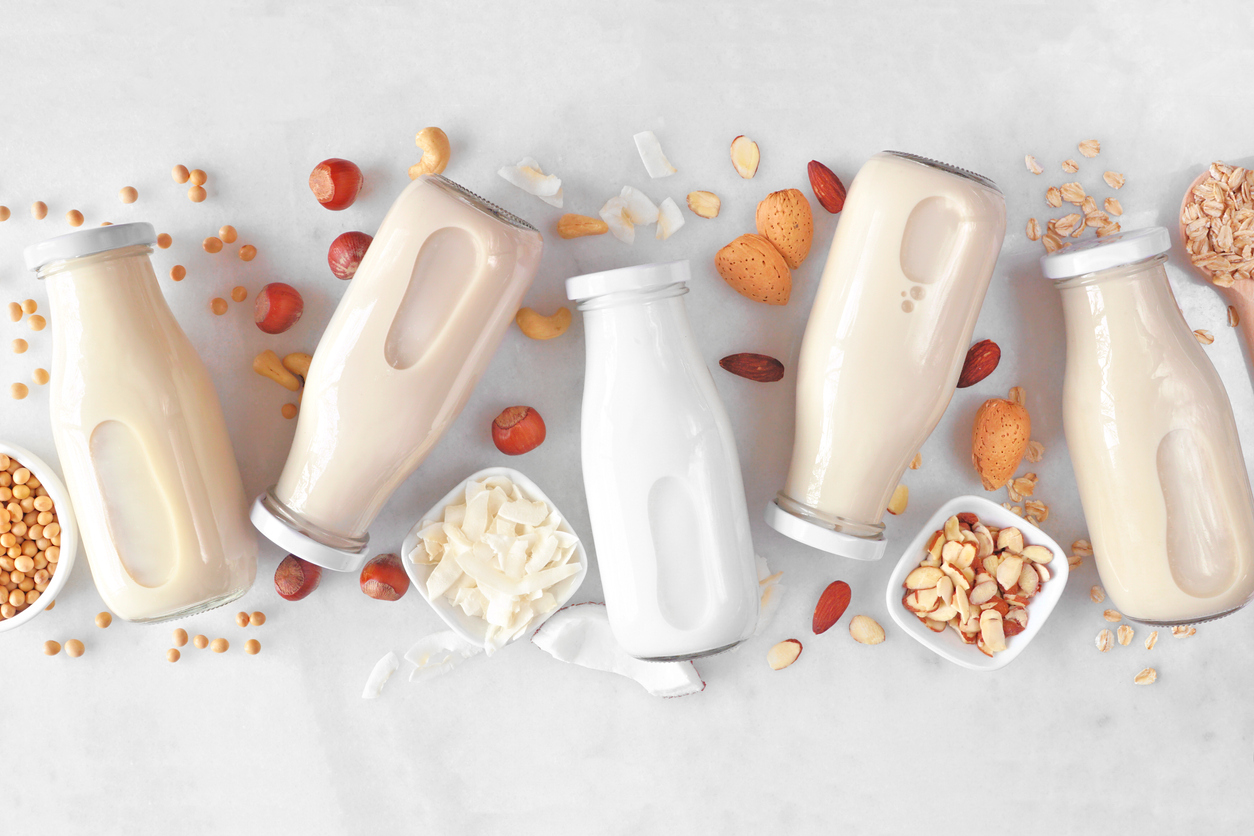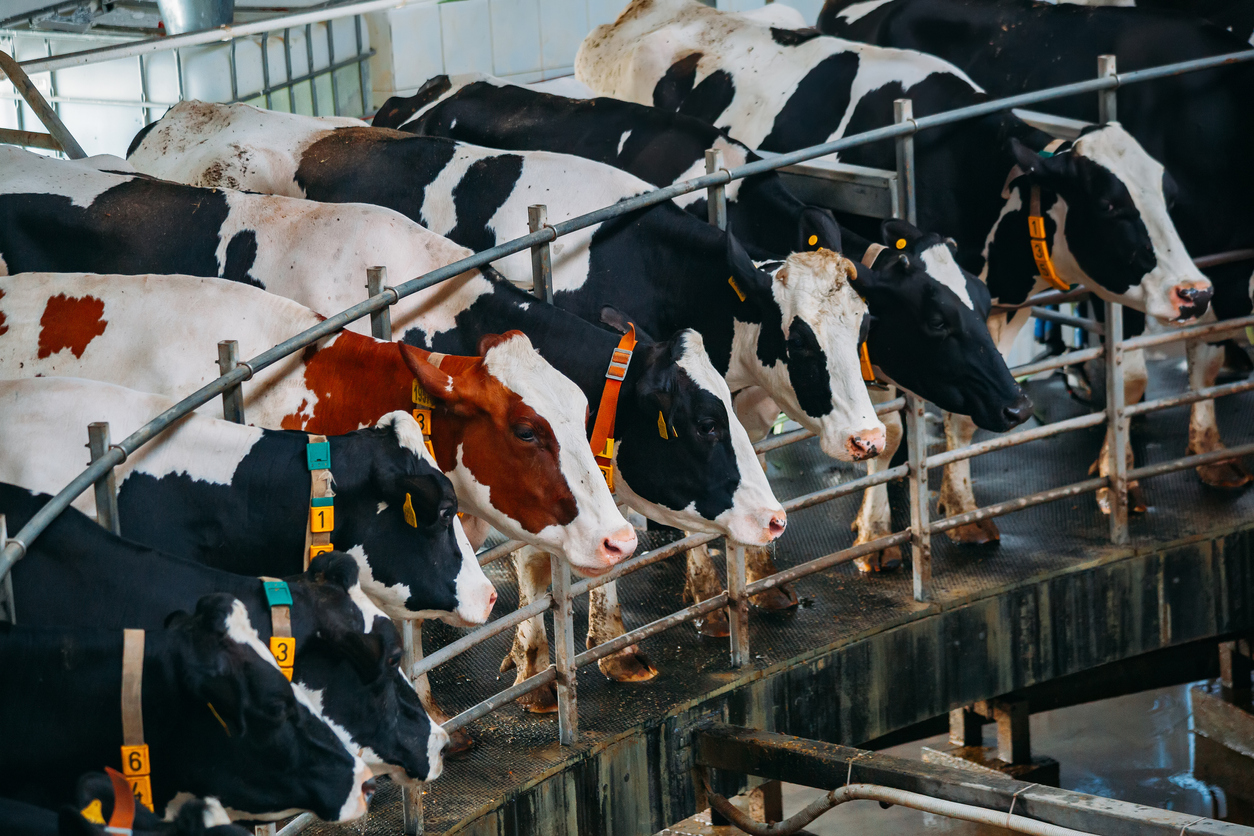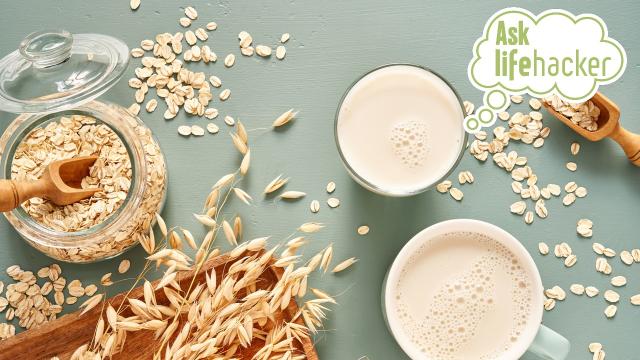Over the past decade, we’ve seen a massive influx of people ditching dairy and opting for plant-based diets. Plant-based milk, like almond and oat milk in particular, has begun dominating the market as people have started to make a conscious effort to improve their health and do their part in easing carbon emissions. But is plant-based milk actually better for you and the environment?
As it turns out, one in six Aussies is now dairy-free, with plant-based milk sales increasing by 48 per cent to 132 million litres during the past four years in Australia.
It’s not just oat and almond milk that’s available, however. The variety of plant-based milks available includes soy, coconut, cashew, pea, hemp, macadamia, rice, avocado, flaxseed, sesame, potato (yes, really) and peanut milk. Yeah, there’s a lot.
But with all these different varieties now at our fingertips, it can be hard to figure out whether plant-based milk is actually better for you and the environment. That brings us to this week’s Ask Lifehacker where we dive into the world of dairy alternatives.
Lucky for us, we’ve got some insight from both Califia Farms and Oatly about how the benefits of plant-based milk for you and the world around you.
The health benefits of plant-based milk

There are a lot of different reasons why people would switch to plant-based milk but a majority of them have to do with lactose intolerance.
Lactose intolerance is the reduced ability to digest milk sugars, known as lactase. As it turns out, up to two-thirds of the adult population worldwide are lactose intolerant.
So if you are someone with lactose intolerant (hello, it’s me), plant-based milk is obviously going to be better for your body to digest and thus keep your gut happier. But beyond being lactose intolerant, there are other health benefits associated with drinking plant-based milk.
For Adelaide-based nutritionist Phoebe Conway, plant-based milk is a healthier choice because of the healthy fats they contain combined with the fact that they have no cholesterol and are lower in calories.
In saying that, however, Conway did note that you have to make sure they’re also unsweetened as some can contain a lot of added sugar, which obviously isn’t good for you.
Conway herself uses Califia Farms oat milk because it “not only has no added sugar but is fortified with both calcium and vitamin D, so you’re not missing out on important nutrients.”
Oatly’s oat-based milk products contain beta-glucan oat fibre which, when consumed regularly as part of a healthy diet, may help to maintain healthy cholesterol levels. Most of Oatly’s oat milk also contains high levels of riboflavin and vitamin D. Both of these aid in the breakdown of fats, proteins and carbohydrates to then transfer them into energy.
There does seem to be a myth around the fact that milk is the only product we can get high levels of calcium from. In fact, a lot of the popular plant-based milk companies, like Califia Farms, Oatly and Minor Figures, offer rich sources of calcium.
If you’re looking at ways to incorporate plant-based milk into your diet, Conway has a few simple tips.
“I always tell people to start with a few simple swaps like almond milk in your smoothies or morning oats instead of dairy. I often use a variety of milks for different things, such as soy or oat in savoury dishes, almond for baking and breakfast, and oat in my latte. For a drink like coffee I recommend a premium oat milk like Califia’s Oat Barista Blend, because you need a neutral tasting milk that doesn’t overpower the coffee flavour, but that’s also rich, creamy and froths well.”
Is plant-based milk better for the environment?

Now that we know that there are health benefits associated with consuming plant-based milk, is it any better for the environment?
According to The Guardian, avoiding meat and dairy is the single best way a person can help reverse climate change. Obviously, plant-based milk production is much nicer to cows and calves but it’s reported that it requires more than 90% less land and produces 60-80% fewer greenhouse gas emissions than dairy milk.
In saying that, however, some plant-based milk production takes a toll on the environment too, although still not as severe as dairy farming.
According to the Sydney Morning Herald, while almond milk is one of the most popular dairy alternatives, it isn’t the most environmentally conscious of the bunch.
Basically, almond milk is the thirstiest of all the plant-based milks to produce as one kernel takes around 12 litres of water. That means that a glass of almond milk will have required more than 70 litres of water.
If you still want to make the switch to plant-based milk and want to remain environmentally sustainable, try either soy or oat milk. Both soy and oat production uses the least amount of water and its land usage and emissions are relatively low compared to the others.
Curtin University Professor of sustainability, Dora Marinova, told the SMH that in all the plant-based milk varieties, it is best to stick with Australian products. This means making sure that the soybeans, almonds and oats are all from Australia.
As Oatly’s sustainability director, Caroline Reid says knowing where to start and what to change in regard to climate change can be overwhelming for individuals.
“It helps to start with small changes where you know for sure you can have a positive impact, such as replacing your cow’s milk with plant-based drinks,” Reid says.
“Doing this will not only reduce your personal carbon footprint but also send a message to the food industry, regarding a shift to a more sustainable system.”
Whether it’s for health reasons or for environmental ones, the rise in popularity of plant-based milk does signal a very interesting shift in the growing awareness of our individual impacts.
It’s important to remember that we are all doing our best to survive under the perilous circumstances we’re currently in. By making small changes together, they eventually add up.
If you are curious about how to make your own plant-based milk at home, we’ve got some great recipes for you to try out.
If you’ve got a burning question that you need answering, send it to us and we will answer it! Your question could be featured on the next Ask Lifehacker.
This article has been updated since publication.

Leave a Reply
You must be logged in to post a comment.